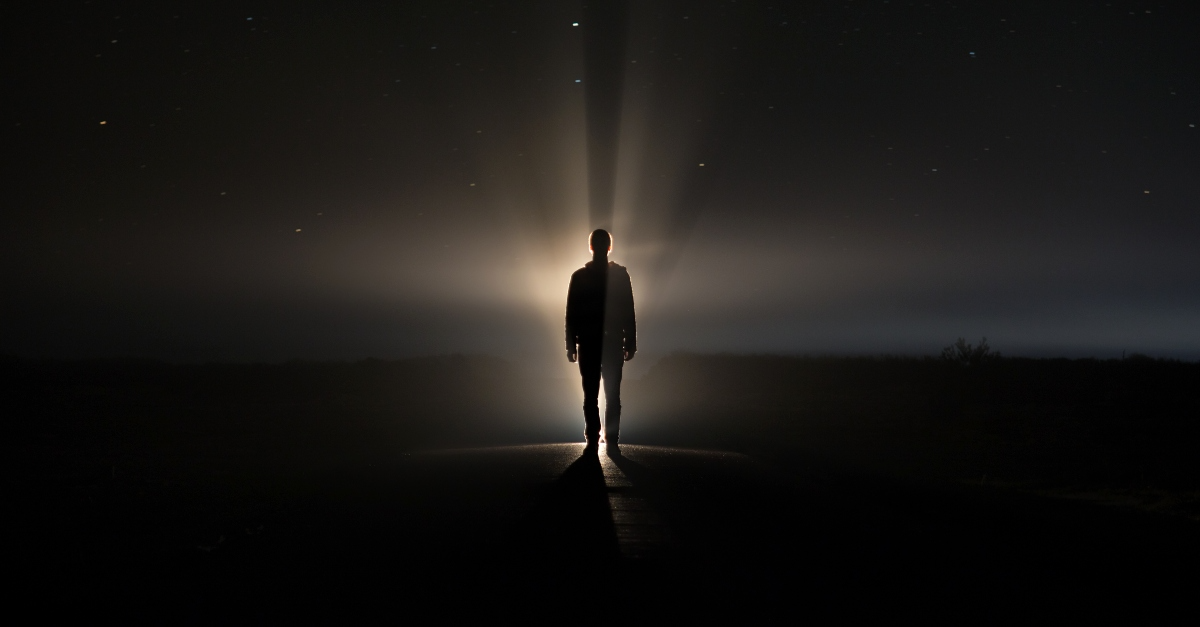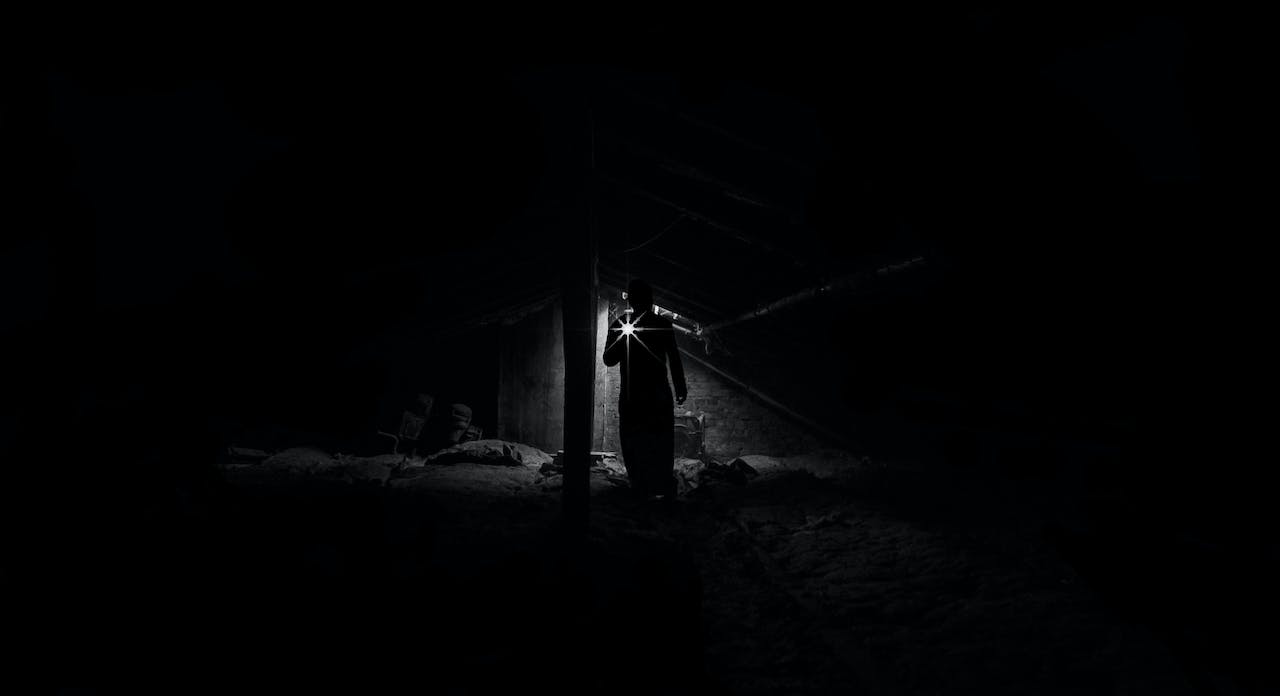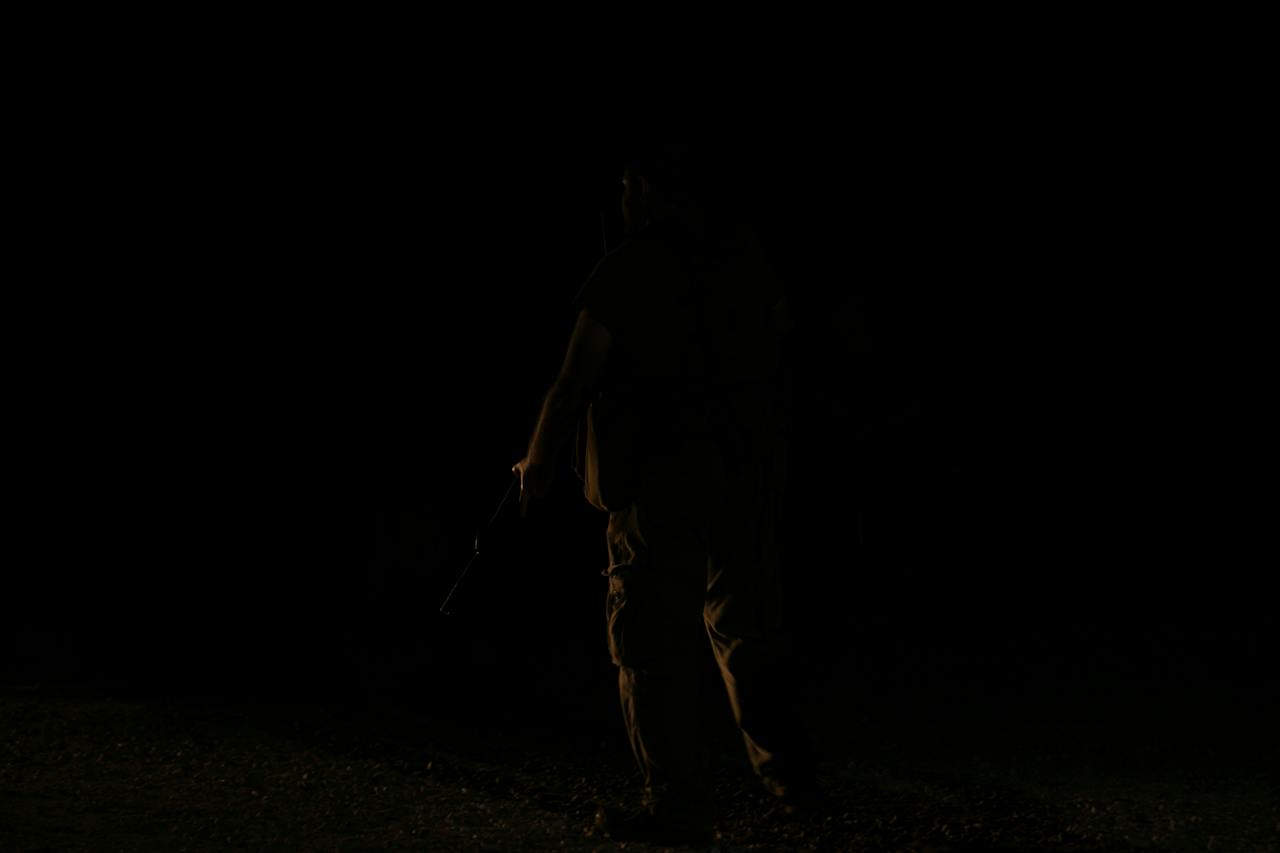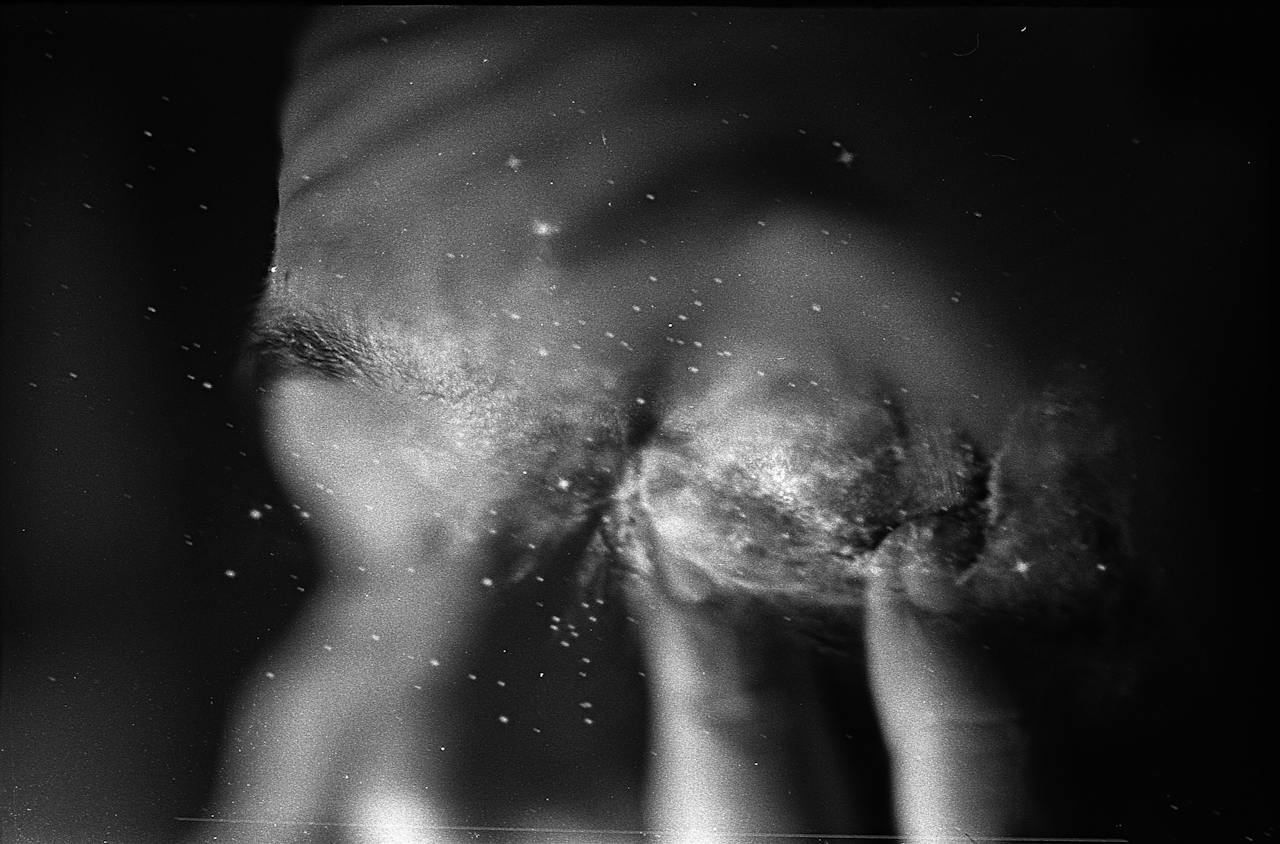What Is The Dark Night Of The Soul?
What is the dark night of the soul? The dark night of the soul is a profound and transformative spiritual experience that has been explored and written about by mystics and philosophers throughout history.
Author:Georgia AshcroftReviewer:Ava MartinezDec 19, 20234.6K Shares68K Views

The phrase "What is the dark night of the soul?" has been used for a very long time. It's a question for when you lose sight of what your life is all about and feel like it has no point. For some people, the mental state is a lot like what we usually call sadness.
There is no point to anything today; it all makes no sense. Sometimes, it's caused by something outside of the person, like a disaster elsewhere. It could happen if someone close to you dies, especially if they die too soon, like if your child dies.
Or you had built up your life and given it meaning, and then for some reason, the meaning you had given your life, your interests, your accomplishments, where you are going, and what you think is essential, falls apart.
You might experience this if something terrible happens that you can't explain away and makes you question the meaning of your life. What really fell apart at that point was the way you thought about your life and the meaning you gave it in your mind. That makes for a dark place.
However, people have gone through that, and you will come out of it in a different state of awareness. There is meaning in life again, but it's not a meaning that you can always explain. Quite often, that's where people wake up from their mental sense of reality, which has broken down.
A Dark Night Of The Soul And The Discovery Of Meaning
So, what is the dark night of the soul? During a university lecture, a man in the crowd cut the speaker off to say that he was unfortunate and had been depressed for a long time. The speaker knew how badly the man was hurting, so he replied by giving him his email address.
The man's behavior made it clear that he wasn't just having a short-term depressive episode. He was dealing with a deep and long-lasting darkness that came from unresolved loss, failure, or emotional pain that had been hidden for a long time.
When people are going through a "dark night of the soul," they often treat it like a sickness and try to figure out why they are having it by taking medicine or going to therapy. But the speaker says that instead of just trying to figure out where this deep sadness comes from, the best way to deal with it is to figure out what action or decision it wants you to make.
Engaging The Night
A Dark Night of the Soul is a rite of passage that helps people move from one stage of life to the next. Throughout life, many of these profound events may happen, each one a sign of personal growth and a deeper connection to the world around us.
This idea of constantly becoming yourself and being involved in life is a hopeful one. Some people think that a really dark night is often linked to significant changes in people's lives. Abraham Lincoln's life is a good example.
He faced death and loneliness early in life, and later, his life was overshadowed by the weight of a war that killed many young men. Lincoln became a symbol of knowledge and leadership even though he was deeply depressed. He may have found comfort in his service to his country, which he did with all his heart.
Finding The Gift In Darkness
Many people have been through unimaginable hardships and made terrific contributions to the progress of humanity. Nelson Mandela is an excellent example of this kind of strength because he was jailed for 27 years and never lost sight of his goals or sense of destiny.
When other prisoners thought about Mandela's personality, they praised his appearance, deportment, and self-control, pointing out how serious he seemed. At this point, when Saturn is bringing presence and gravity to the night, Mandela's imprisonment is a real example, not just a mood.
The lessons Mandela taught us about how to get through dark nights are beneficial: we should face them head-on, not give in to lies, and keep our sense of worth, power, and unwavering vision. Mandela says that in the face of darkness, people should embrace their inner battles and let them shape how they act and what they say.
Psychiatry And The Dark Night Of The Soul
One possibility is that Christian's suicide was mainly caused by a bipolar major depressive episode, which may have been made worse by psychotic symptoms. The pandemic and the losses it caused were likely instant triggers.
But, new research offers different points of view and urges us to think about mental and emotional states that aren't covered in the DSM-5. People who are in these states may be more likely to commit suicide, even if they don't fully meet the DSM standards for a major depressive episode.
Also, there are times when it's helpful to switch from a purely clinical point of view to a spiritual one. Because of this change, ideas that aren't in the DSM will be looked at more closely, especially what some mystics and priests call "the dark night of the soul." Before we go any further with this spiritual view, it's essential to look at two connected ideas that aren't in the DSM.
Demoralization And Despair
Demoralization is a different syndrome from depression that shows up as a mix of distress and feeling like you're not good at what you're doing, along with a loss of life's meaning and purpose. People who are demoralized often feel like they don't have any social support, like they're stuck like they've failed, and like they can't doanything to improve their situation.
This mental state has a significant effect on a patient's quality of life, ability to cope, and sense of respect. It is linked to suicidal thoughts, a stronger desire to die quickly, and a worsening prognosis in patients who are already sick.
Despair
In a recent piece called "Dying Without a Dream," psychiatrist Kenneth Gilbert, MD, wrote about a trait he saw in people with substance use disorders who died from opioid overdoses.
He pointed out that these people didn't seem to think their own lives were worth living or guarding, which is why they died of despair. Gilbert asked if people might not see a reason to protect their own lives if they don't have any meaning or purpose in their lives.
The Dark Night Of The Soul
People often use the phrase "dark night of the soul" to refer to tough times, like after the death of a loved one, the end of a marriage, or being told you have a disease that could kill you. For many, the feeling of being alone, lonely, and scared during the COVID-19 pandemic fits with this idea.
While these everyday uses are related to feelings of hopelessness and depression, they are not the same as the original meaning that was first used by the Spanish saint John of the Cross (1541–1597 AD).
Surviving The Dark Night
In his book "Dark Nights of the Soul," psychotherapist and former Catholic monk Thomas Moore talks about how to deal with dark nights spiritually.
He says that people need to stay in the present and not be stuck in the past or afraid of what might happen in the future. Moore says that letting the process of change happen is the key to getting rid of the dark night's pressure.
The Midwife And The Dark Night Of The Soul
Therapists are told to understand and value the dark night of the soul because it changes and affects the people they work with. At the same time, they should figure out how demoralized and hopeless their patients may be, taking into account the effects of drug abuse and suicide.
Therapists need to be able to tell the difference between the "dark night of the soul" and other illnesses and disorders, like major depression disorder. If your spiritual journey doesn't go as planned, you may experience a dark night. This isn't a disease but a part of being human that makes us vulnerable.
Stages Of The Dark Night Of The Soul
Stage 1 - Major Disruption Or Triggering Event(S)
A lot of the time, the dark night of the soul starts with an event or cause that you weren't ready for. Kaiser also refers to this stage as "The Roller Coaster" and says it's like a psychological crisis because you are in a lot of pain because of things outside of your control.
This could include but isn't limited to, the death of a loved one, being very poor, getting sick, being betrayed, being abused, losing your job, and so on.
Stage 2 - Loss Of Direction And Hope
As soon as the first trigger is hit, the dark night of the soul starts, bringing with it hopelessness and misery. Kaiser says that at this stage, you may feel like life, especially the life you've been living, has no point.
The journey through the dark night is like an upside-down bell curve. Instead of peaking in the middle, it goes down, down, down to the bottom, which brings us to the next step.
Stage 3 - Rock Bottom
The dark night of the soul isn't easy all the way through, but at rock bottom (or the bottom of the inverted bell curve), it will feel like the pain is unbearable. Kaiser says this is often the worst time in a person's life.
During this time, you may lose friends and family, become emotionally numb, or become numb through addictions, she says. "Family and friends often leave us during this phase." During this time, things get terrible, but if we're ready to learn, it will also teach us something important.
Stage 4 - Waking Up To The Truth
Before you can feel whole again, you have to keep going up that bell curve we keep talking about. There is light on the other side of rock bottom. Kaiser says that when you're at your worst, you start to see the truth, which won't be easy.
Kaiser says that people in this stage may experience physical signs of stress, like headaches, anxiety, and body aches, as well as mental and emotional signs. People will be able to go deep inside themselves because it's a trip back to the source.
Stage 5 - Spiritual Study
Once you know who you are and what you're here to do, you can move on to the fifth stage of mental study and finding balance. Kaiser says, "Once you know what your life's purpose is, you can start building the foundations of the life you were meant to live."
At this point, you might be more interested in and drawn to spiritual leaders and guides. You'll also start to build the life you want slowly but surely, she says.
Stage 6 - Authentic Living
Finally, when your "dark night of the soul" is over, you'll feel a sense of peace, understanding, and wholeness that you thought you had lost. Kaiser says you'll know you've reached the end of the dark night of the soul when you have a better sense of how your life fits into the bigger picture and all the wounds you've mended.
Now that we have a different point of view, we can turn our pain and sorrow into wisdom. This lets us move on and gives us even more light to share with the world because we have been through it.
The Two Types Of Dark Night Of The Soul
The idea of the "Dark Night of the Soul" includes two different types, each with its meaning and effects.
In-formal Dark Night
When people casually use the word to talk about complex and stressful times in their lives, this type refers to that use. This could happen after an unfortunate event in your life, like the death of a loved one, the end of a marriage, or being told you have a severe sickness.
The casual Dark Night captures the deep emotional battles and existential questions that come with going through hard times. Some examples are loneliness, separation, and fear, which are especially clear during mass crises like the COVID-19 pandemic. This usage fits with the feelings of hopelessness and depression, bringing attention to how people deal with huge problems.
Formal Dark Night Of The Soul
The Spanish mystic John of the Cross (1541–1597) came up with the idea of the "Dark Night of the Soul," which has a clear spiritual and psychological meaning. It goes beyond what most people think about when they think about complex life events and into the realm of profound spiritual change.
A sense of spiritual emptiness, a feeling of being far from God, and a time of extreme purification are common during this kind of Dark Night. People who are going through the formal Dark Night may feel like their attachments and illusions are being stripped away, which can lead to a more vital link with the spiritual world.
The Spiritual Dark Night
As a spiritual awakeningtrip, the spiritual Dark Night of the Soul is a prominent place to be. It happens when the soul on earth is 50% integrated with its higher self in the higher dimensions. This can also be thought of as the aware mind (soul) and the superconscious mind coming together. There is an obvious way that the spiritual Dark Night of the Soul shows up.
It always happens after a time when we are very connected to the universe and talk to our higher selves and guides on a daily basis. As soon as the spiritual Dark Night of the Soul starts, which is usually overnight, there is no more contact. We feel calmed down, cut off, linked, and by ourselves.
The Purpose Of The Spiritual Dark Night Of The Soul
The spiritual Dark Night of the Soul is meant to teach us to be independent and able to do things on our own. During the stage before awakening, we often start to rely on our leaders for help and direction.
We are meant to make our own choices and mistakes, though. That's why we come into this world: to learn. Taking away the "crutch" that our guides give us means we have to use our resources again.
How To Get Out Of The Two Types Of Dark Night Of The Soul
Getting through the two kinds of Dark Night of the Soul formal and informal is a complex and deeply personal process. Here are some broad ideas that people might want to think about, but keep in mind that these ideas might not work for everyone.
Informal Dark Night
- Ask for help- Talk to family, friends, or someone who can help you. Talking about your thoughts and feelings can help you feel less lonely and alone.
- Professional Help - You should go to therapy or counseling to talk about and work through the mental parts of your problems. Mental health experts can help with advice and ways to deal with problems.
- Self-Reflection- Do some self-reflection to figure out what's causing your mental pain. Writing in a journal or making art can help you work through your feelings and thoughts.
- Establish Routine- Set up a daily schedule that includes things that make you happy. The structure can give you a sense of security when things are hard.
- Mindfulness and Meditation- Stay in the present and find inner peace by meditating or practicing awareness. Engaging in mind-body routines can help lower stress and improve emotional health.
Formal Dark Night
- Spiritual Guidance - Talk to a spiritual guide, teacher, or someone you trust in your faith system for advice. They can help you on your spiritual path and give you new ideas.
- Contemplative Practices - Do things that help you think, like prayer, meditation, or rituals that are important to your spiritual views. These habits can help you connect with God more deeply.
- Acceptance -Accept the challenges as part of your mental growth and enjoy the process. Do not fight the change; let it happen naturally.
- Study Spiritual Texts- Look into religious writings, stories, or lessons that connect with your spiritual views. They can help you get through the Dark Night by giving you advice and new points of view.
- Community Involvement - Get in touch with a spiritual community or other people who share your views. Sharing thoughts and experiences with others can give you a feeling of having a purpose.
What Is The Dark Night Of The Soul? - FAQs
What Happens During The Dark Night Of The Soul?
The Dark Night of the Soul involves intense inner struggles, emotional turmoil, and a profound questioning of one's beliefs and existence, leading to transformative growth.
What Is The Dark Night Of The Soul In Buddhism?
In Buddhism, the Dark Night of the Soul aligns with the concept of the "Dukkha Nanas," stages of insight marked by profound existential challenges on the path to enlightenment.
How Long Can The Dark Night Of The Soul Last?
The duration of the Dark Night of the Soul varies widely; it can be a fleeting experience or a prolonged, challenging journey lasting months or even years.
What Is The Dark Night Of The Soul Personality?
The Dark Night of the Soul does not pertain to a specific personality type but rather signifies a universal and transformative process that individuals of diverse personalities may undergo.
Final Thoughts
The Dark Night of the Soul is a profound and transformative journey that transcends religious, cultural, and psychological boundaries. Rooted in ancient mysticism and echoed in contemporary psychology, this odyssey through the depths of the soul offers individuals an opportunity for profound self-discovery and spiritual evolution.
While the path may be arduous, the rewards are immense – a rebirth into a more authentic and enlightened self. The Dark Night of the Soul, with all its challenges and revelations, beckons individuals to embark on a journey of alchemical transformation, where the shadows are faced, and the soul emerges into the radiant light of self-realization.
What is the Dark Night of the Soul? It is an invitation to explore the innermost recesses of the self, to confront the abyss, and to emerge, transformed, into the embrace of spiritual illumination.
There is no point to anything today; it all makes no sense. Sometimes, it's caused by something outside of the person, like a disaster elsewhere. It could happen if someone close to you dies, especially if they die too soon, like if your child dies.
Or you had built up your life and given it meaning, and then for some reason, the meaning you had given your life, your interests, your accomplishments, where you are going, and what you think is essential, falls apart.
You might experience this if something terrible happens that you can't explain away and makes you question the meaning of your life. What really fell apart at that point was the way you thought about your life and the meaning you gave it in your mind. That makes for a dark place.
However, people have gone through that, and you will come out of it in a different state of awareness. There is meaning in life again, but it's not a meaning that you can always explain. Quite often, that's where people wake up from their mental sense of reality, which has broken down.
A Dark Night Of The Soul And The Discovery Of Meaning
So, what is the dark night of the soul? During a university lecture, a man in the crowd cut the speaker off to say that he was unfortunate and had been depressed for a long time. The speaker knew how badly the man was hurting, so he replied by giving him his email address.
The man's behavior made it clear that he wasn't just having a short-term depressive episode. He was dealing with a deep and long-lasting darkness that came from unresolved loss, failure, or emotional pain that had been hidden for a long time.
When people are going through a "dark night of the soul," they often treat it like a sickness and try to figure out why they are having it by taking medicine or going to therapy. But the speaker says that instead of just trying to figure out where this deep sadness comes from, the best way to deal with it is to figure out what action or decision it wants you to make.
Engaging The Night
A Dark Night of the Soul is a rite of passage that helps people move from one stage of life to the next. Throughout life, many of these profound events may happen, each one a sign of personal growth and a deeper connection to the world around us.
This idea of constantly becoming yourself and being involved in life is a hopeful one. Some people think that a really dark night is often linked to significant changes in people's lives. Abraham Lincoln's life is a good example.
He faced death and loneliness early in life, and later, his life was overshadowed by the weight of a war that killed many young men. Lincoln became a symbol of knowledge and leadership even though he was deeply depressed. He may have found comfort in his service to his country, which he did with all his heart.
Finding The Gift In Darkness
Many people have been through unimaginable hardships and made terrific contributions to the progress of humanity. Nelson Mandela is an excellent example of this kind of strength because he was jailed for 27 years and never lost sight of his goals or sense of destiny.
When other prisoners thought about Mandela's personality, they praised his appearance, deportment, and self-control, pointing out how serious he seemed. At this point, when Saturn is bringing presence and gravity to the night, Mandela's imprisonment is a real example, not just a mood.
The lessons Mandela taught us about how to get through dark nights are beneficial: we should face them head-on, not give in to lies, and keep our sense of worth, power, and unwavering vision. Mandela says that in the face of darkness, people should embrace their inner battles and let them shape how they act and what they say.
Psychiatry And The Dark Night Of The Soul
One possibility is that Christian's suicide was mainly caused by a bipolar major depressive episode, which may have been made worse by psychotic symptoms. The pandemic and the losses it caused were likely instant triggers.
But, new research offers different points of view and urges us to think about mental and emotional states that aren't covered in the DSM-5. People who are in these states may be more likely to commit suicide, even if they don't fully meet the DSM standards for a major depressive episode.
Also, there are times when it's helpful to switch from a purely clinical point of view to a spiritual one. Because of this change, ideas that aren't in the DSM will be looked at more closely, especially what some mystics and priests call "the dark night of the soul." Before we go any further with this spiritual view, it's essential to look at two connected ideas that aren't in the DSM.
Demoralization And Despair
Demoralization is a different syndrome from depression that shows up as a mix of distress and feeling like you're not good at what you're doing, along with a loss of life's meaning and purpose. People who are demoralized often feel like they don't have any social support, like they're stuck like they've failed, and like they can't do anything to improve their situation.
This mental state has a significant effect on a patient's quality of life, ability to cope, and sense of respect. It is linked to suicidal thoughts, a stronger desire to die quickly, and a worsening prognosis in patients who are already sick.
Despair
In a recent piece called "Dying Without a Dream," psychiatrist Kenneth Gilbert, MD, wrote about a trait he saw in people with substance use disorders who died from opioid overdoses.
He pointed out that these people didn't seem to think their own lives were worth living or guarding, which is why they died of despair. Gilbert asked if people might not see a reason to protect their own lives if they don't have any meaning or purpose in their lives.
The Dark Night Of The Soul
People often use the phrase "dark night of the soul" to refer to tough times, like after the death of a loved one, the end of a marriage, or being told you have a disease that could kill you. For many, the feeling of being alone, lonely, and scared during the COVID-19 pandemic fits with this idea.
While these everyday uses are related to feelings of hopelessness and depression, they are not the same as the original meaning that was first used by the Spanish saint John of the Cross (1541–1597 AD).
Surviving The Dark Night
In his book "Dark Nights of the Soul," psychotherapist and former Catholic monk Thomas Moore talks about how to deal with dark nights spiritually.
He says that people need to stay in the present and not be stuck in the past or afraid of what might happen in the future. Moore says that letting the process of change happen is the key to getting rid of the dark night's pressure.
The Midwife And The Dark Night Of The Soul
Therapists are told to understand and value the dark night of the soul because it changes and affects the people they work with. At the same time, they should figure out how demoralized and hopeless their patients may be, taking into account the effects of drug abuse and suicide.
Therapists need to be able to tell the difference between the "dark night of the soul" and other illnesses and disorders, like major depression disorder. If your spiritual journey doesn't go as planned, you may experience a dark night. This isn't a disease but a part of being human that makes us vulnerable.
Stages Of The Dark Night Of The Soul
Stage 1 - Major Disruption Or Triggering Event(S)
A lot of the time, the dark night of the soul starts with an event or cause that you weren't ready for. Kaiser also refers to this stage as "The Roller Coaster" and says it's like a psychological crisis because you are in a lot of pain because of things outside of your control.
This could include but isn't limited to, the death of a loved one, being very poor, getting sick, being betrayed, being abused, losing your job, and so on.
Stage 2 - Loss Of Direction And Hope
As soon as the first trigger is hit, the dark night of the soul starts, bringing with it hopelessness and misery. Kaiser says that at this stage, you may feel like life, especially the life you've been living, has no point.
The journey through the dark night is like an upside-down bell curve. Instead of peaking in the middle, it goes down, down, down to the bottom, which brings us to the next step.
Stage 3 - Rock Bottom
The dark night of the soul isn't easy all the way through, but at rock bottom (or the bottom of the inverted bell curve), it will feel like the pain is unbearable. Kaiser says this is often the worst time in a person's life.
During this time, you may lose friends and family, become emotionally numb, or become numb through addictions, she says. "Family and friends often leave us during this phase." During this time, things get terrible, but if we're ready to learn, it will also teach us something important.
Stage 4 - Waking Up To The Truth
Before you can feel whole again, you have to keep going up that bell curve we keep talking about. There is light on the other side of rock bottom. Kaiser says that when you're at your worst, you start to see the truth, which won't be easy.
Kaiser says that people in this stage may experience physical signs of stress, like headaches, anxiety, and body aches, as well as mental and emotional signs. People will be able to go deep inside themselves because it's a trip back to the source.
Stage 5 - Spiritual Study
Once you know who you are and what you're here to do, you can move on to the fifth stage of mental study and finding balance. Kaiser says, "Once you know what your life's purpose is, you can start building the foundations of the life you were meant to live."
At this point, you might be more interested in and drawn to spiritual leaders and guides. You'll also start to build the life you want slowly but surely, she says.
Stage 6 - Authentic Living
Finally, when your "dark night of the soul" is over, you'll feel a sense of peace, understanding, and wholeness that you thought you had lost. Kaiser says you'll know you've reached the end of the dark night of the soul when you have a better sense of how your life fits into the bigger picture and all the wounds you've mended.
Now that we have a different point of view, we can turn our pain and sorrow into wisdom. This lets us move on and gives us even more light to share with the world because we have been through it.
The Two Types Of Dark Night Of The Soul
The idea of the "Dark Night of the Soul" includes two different types, each with its meaning and effects.
In-formal Dark Night
When people casually use the word to talk about complex and stressful times in their lives, this type refers to that use. This could happen after an unfortunate event in your life, like the death of a loved one, the end of a marriage, or being told you have a severe sickness.
The casual Dark Night captures the deep emotional battles and existential questions that come with going through hard times. Some examples are loneliness, separation, and fear, which are especially clear during mass crises like the COVID-19 pandemic. This usage fits with the feelings of hopelessness and depression, bringing attention to how people deal with huge problems.
Formal Dark Night Of The Soul
The Spanish mystic John of the Cross (1541–1597) came up with the idea of the "Dark Night of the Soul," which has a clear spiritual and psychological meaning. It goes beyond what most people think about when they think about complex life events and into the realm of profound spiritual change.
A sense of spiritual emptiness, a feeling of being far from God, and a time of extreme purification are common during this kind of Dark Night. People who are going through the formal Dark Night may feel like their attachments and illusions are being stripped away, which can lead to a more vital link with the spiritual world.
The Spiritual Dark Night
As a spiritual awakening trip, the spiritual Dark Night of the Soul is a prominent place to be. It happens when the soul on earth is 50% integrated with its higher self in the higher dimensions. This can also be thought of as the aware mind (soul) and the superconscious mind coming together. There is an obvious way that the spiritual Dark Night of the Soul shows up.
It always happens after a time when we are very connected to the universe and talk to our higher selves and guides on a daily basis. As soon as the spiritual Dark Night of the Soul starts, which is usually overnight, there is no more contact. We feel calmed down, cut off, linked, and by ourselves.
The Purpose Of The Spiritual Dark Night Of The Soul
The spiritual Dark Night of the Soul is meant to teach us to be independent and able to do things on our own. During the stage before awakening, we often start to rely on our leaders for help and direction.
We are meant to make our own choices and mistakes, though. That's why we come into this world: to learn. Taking away the "crutch" that our guides give us means we have to use our resources again.
How To Get Out Of The Two Types Of Dark Night Of The Soul
Getting through the two kinds of Dark Night of the Soul formal and informal is a complex and deeply personal process. Here are some broad ideas that people might want to think about, but keep in mind that these ideas might not work for everyone.
Informal Dark Night
- Ask for help- Talk to family, friends, or someone who can help you. Talking about your thoughts and feelings can help you feel less lonely and alone.
- Professional Help - You should go to therapy or counseling to talk about and work through the mental parts of your problems. Mental health experts can help with advice and ways to deal with problems.
- Self-Reflection- Do some self-reflection to figure out what's causing your mental pain. Writing in a journal or making art can help you work through your feelings and thoughts.
- Establish Routine- Set up a daily schedule that includes things that make you happy. The structure can give you a sense of security when things are hard.
- Mindfulness and Meditation- Stay in the present and find inner peace by meditating or practicing awareness. Engaging in mind-body routines can help lower stress and improve emotional health.
Formal Dark Night
- Spiritual Guidance - Talk to a spiritual guide, teacher, or someone you trust in your faith system for advice. They can help you on your spiritual path and give you new ideas.
- Contemplative Practices - Do things that help you think, like prayer, meditation, or rituals that are important to your spiritual views. These habits can help you connect with God more deeply.
- Acceptance -Accept the challenges as part of your mental growth and enjoy the process. Do not fight the change; let it happen naturally.
- Study Spiritual Texts- Look into religious writings, stories, or lessons that connect with your spiritual views. They can help you get through the Dark Night by giving you advice and new points of view.
- Community Involvement - Get in touch with a spiritual community or other people who share your views. Sharing thoughts and experiences with others can give you a feeling of having a purpose.
What Is The Dark Night Of The Soul? - FAQs
What Happens During The Dark Night Of The Soul?
The Dark Night of the Soul involves intense inner struggles, emotional turmoil, and a profound questioning of one's beliefs and existence, leading to transformative growth.
What Is The Dark Night Of The Soul In Buddhism?
In Buddhism, the Dark Night of the Soul aligns with the concept of the "Dukkha Nanas," stages of insight marked by profound existential challenges on the path to enlightenment.
How Long Can The Dark Night Of The Soul Last?
The duration of the Dark Night of the Soul varies widely; it can be a fleeting experience or a prolonged, challenging journey lasting months or even years.
What Is The Dark Night Of The Soul Personality?
The Dark Night of the Soul does not pertain to a specific personality type but rather signifies a universal and transformative process that individuals of diverse personalities may undergo.
Final Thoughts
The Dark Night of the Soul is a profound and transformative journey that transcends religious, cultural, and psychological boundaries. Rooted in ancient mysticism and echoed in contemporary psychology, this odyssey through the depths of the soul offers individuals an opportunity for profound self-discovery and spiritual evolution.
While the path may be arduous, the rewards are immense – a rebirth into a more authentic and enlightened self. The Dark Night of the Soul, with all its challenges and revelations, beckons individuals to embark on a journey of alchemical transformation, where the shadows are faced, and the soul emerges into the radiant light of self-realization.
What is the Dark Night of the Soul? It is an invitation to explore the innermost recesses of the self, to confront the abyss, and to emerge, transformed, into the embrace of spiritual illumination.
Jump to
A Dark Night Of The Soul And The Discovery Of Meaning
Psychiatry And The Dark Night Of The Soul
Stages Of The Dark Night Of The Soul
The Two Types Of Dark Night Of The Soul
The Spiritual Dark Night
How To Get Out Of The Two Types Of Dark Night Of The Soul
What Is The Dark Night Of The Soul? - FAQs
Final Thoughts
A Dark Night Of The Soul And The Discovery Of Meaning
Psychiatry And The Dark Night Of The Soul
Stages Of The Dark Night Of The Soul
The Two Types Of Dark Night Of The Soul
The Spiritual Dark Night
How To Get Out Of The Two Types Of Dark Night Of The Soul
What Is The Dark Night Of The Soul? - FAQs
Final Thoughts

Georgia Ashcroft
Author
Georgia Ashcroft is a seasoned astrologer and spiritual practitioner with over 5 years of experience. She holds a Master's degree in Physics from Princeton University, enriching her astrological insights with a deep understanding of scientific principles.
Georgia's published works encompass insightful analyses of astrological phenomena, including zodiac signs and horoscope interpretations, establishing her as an esteemed figure in astrological circles.
Beyond astrology, Georgia is passionate about tarot and regularly incorporates its wisdom into her spiritual practice.

Ava Martinez
Reviewer
Ava Martinez is a highly experienced author specializing in spirituality and tarot. With over 12 years of dedicated practice, Ava brings a wealth of experience and expertise to her writings.
She has dedicated herself to helping individuals gain insight and clarity through spiritual practices and tarot consultations.
Her deep connection to spiritual energies and engaging style make her readings a trusted resource for those seeking guidance and enlightenment.
Apart from her literary world, Ava embraces nature's gifts, explores meditation's depths, and intertwines the mystical essence of spells into her holistic perspective on life's journey.
Latest Articles
Popular Articles



